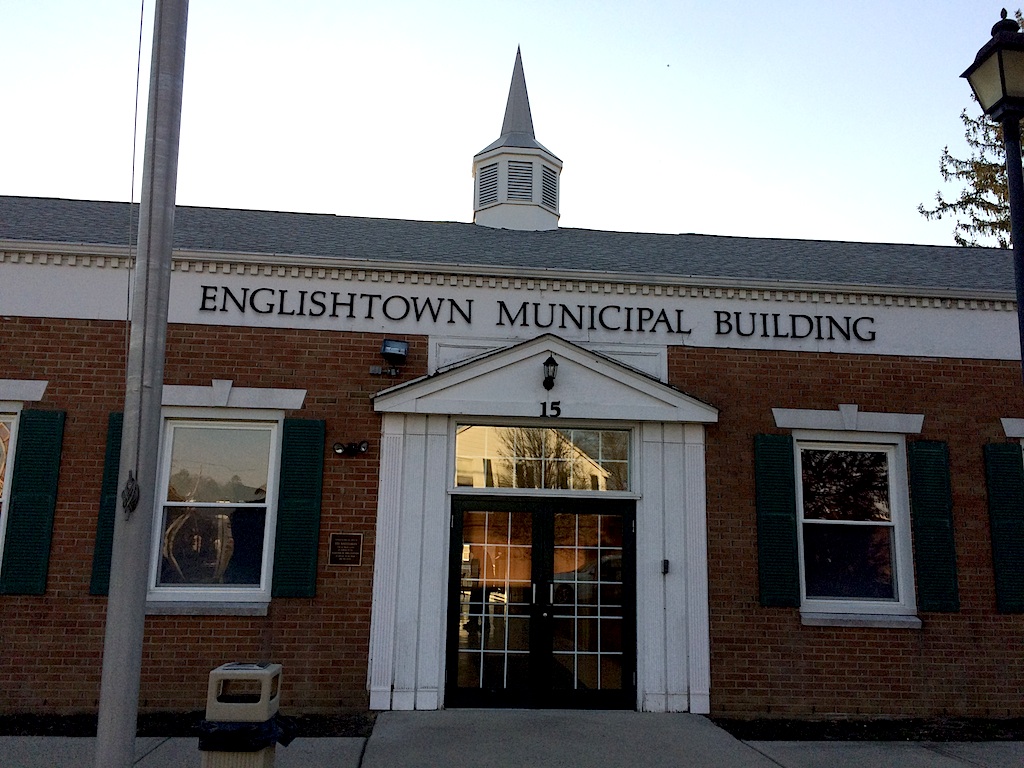By Mark Rosman
Staff Writer
ENGLISHTOWN – The Borough Council has adopted a $2.36 million budget to fund the operation of Englishtown this year.
No residents commented on the budget during a public hearing that was held at the council’s April 27 meeting. The public hearing preceded a 4-0 vote by council members Greg Wojyn, Lou Sarti Jr., Cindy Robilotti and Maryanne Krawiec to adopt the spending plan.
According to Business Administrator and Chief Financial Officer Laurie Finger, the $2.36 million budget will be supported by the collection of $1.49 million in taxes from residential and commercial property owners. Other revenue includes the use of $258,000 in surplus funds (savings) and $142,206 in state aid.
Finger said the budget complies with state laws regarding the amount of taxes that may be raised from local property owners and appropriations that may be made by the governing body. She said the budget was approved by the state Department of Community Affairs on April 26.
Englishtown’s 2015 budget totaled $2.4 million and was supported through the collection of $1.42 million in property taxes, $325,000 in surplus funds and $142,206 in state aid. The tax rate was 59.1 cents per $100 of assessed valuation and the average home assessment was $300,000. The owner of that home paid $1,773 in municipal taxes.
In 2016, the municipal tax rate is projected to be 62.1 cents and the average home assessment is $299,716. The owner of that home will pay $1,861 in municipal taxes – an increase of $88.
An individual will pay more or less in municipal taxes based on the assessment of his property and/or home.
In addition to municipal taxes, a property owner’s tax bill also includes Manalapan-Englishtown Regional School District taxes, Freehold Regional High School District taxes, Monmouth County taxes and other assessments.
Mayor Tom Reynolds said borough officials try to use as much surplus as possible to support the budget each year in order to reduce the amount of a tax increase. He said that for several reasons, the amount of surplus that was available for the 2016 budget was $67,000 less than the amount of surplus that was available for the 2015 budget.
“We try to be as frugal as we can, but we still have snow to plow, we have to keep the lights on, and we have police and a public works department,” Reynolds said. “The town is pretty much built out and our ratable base is what we have. We don’t have open space to bring in hundreds of homes like some of our neighboring towns.”
The only planned capital improvement for 2016 will be the reconstruction of Carriage Lane at a cost of $225,000, according to Finger. Of that total, $124,100 will be covered through a state Department of Transportation grant.
During the meeting, the council passed a resolution authorizing the borough engineer to prepare bid specifications, advertise and receive bids for the Carriage Lane project.
The 2016 municipal budget includes the following appropriations: police department, salaries and wages, $599,870; police department, other expenses, $105,200; 911 emergency service contract with Monmouth County, $55,000; municipal debt service, $212,550; employee group health insurance, $211,580; garbage and trash removal, $140,000; and street lighting, $32,500.
Englishtown has 13 full-time employees, which includes seven police officers, and 21 part-time employees. Personnel costs account for $1.22 million of the borough’s $2.36 million budget for 2016.
Finally, the council members appointed Eric Mann to fill the seat that was left open by the recent resignation of Rudolph Rucker. Mann will serve the remainder of 2016. Prior to his appointment, Mann had filed to run in the Nov. 8 election to serve the final year of Rucker’s term (2017).
Because Rucker is a Republican, the Englishtown Republican Party was tasked with submitting the names of individuals to succeed him on the council. Party leaders put forward the names of Mann, Casandra Carmine and David Cuciti to fill the open seat.
Following the council’s vote to appoint him, Mann was sworn in by Reynolds and took a seat on the dais. He abstained from voting on any ordinances or resolutions during the remainder of the meeting.

